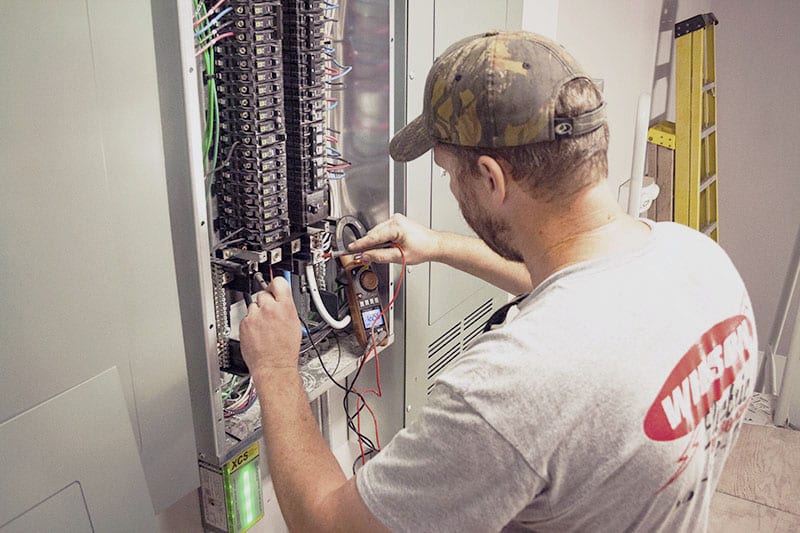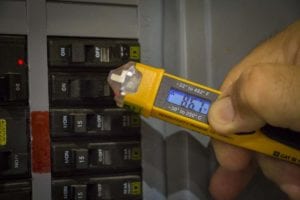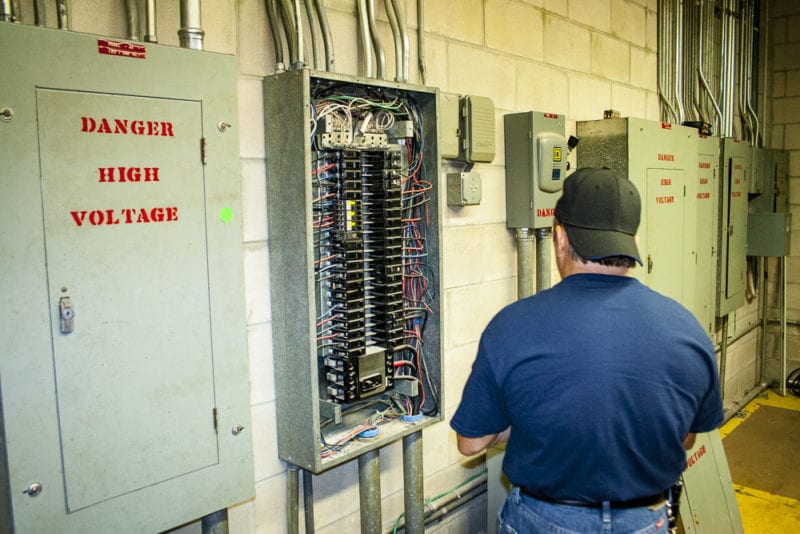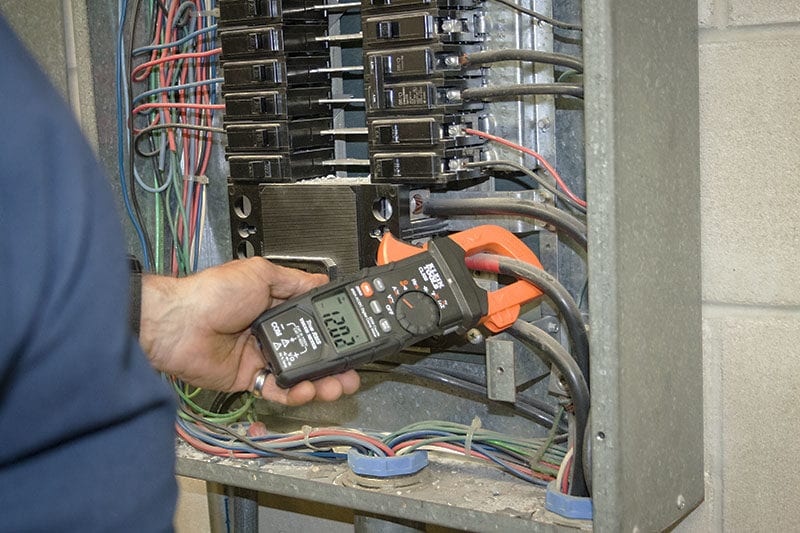We realize that some of our readers might be considering work in the electrical trade. What does the process look like? Where does all your work lead you? All of these questions are legitimate, and worth considering when getting into a trade. Well, we can help! In this brief overview, we’re looking to highlight the difference between master and journeyman electricians. This should hopefully help you map out your next career move with a little bit more foresight.
Table of Contents
So, where to begin? The local state government, rather than the national government, will license electricians. The state does, however, follow the National Electrical Code, which recognizes electricians by three broad categories: apprentices, journeymen, and masters.
So let’s start with some basics.
What is an Apprentice Electrician?
The difference between Master and Journeyman electricians starts with apprenticing. An apprentice is basically a trainee who works under the direct supervision of a Master Electrician. He or she will spend three to six years training in this role. An apprentice takes classroom instruction while they work alongside a licensed electrician—learning the trade first-hand while on the job.
At the end of the apprenticeship, this new, “green” electrician needs to pass a journeyman test. The test basically covers foundational electrical knowledge and the National Electrical Code. Passing this grants the apprentice their journeyman electrician license. Thus, the requirement for significant classroom instruction in addition to practical training. Apprenticing lets these budding electricians study and learn the best ways to do the job right the first time!
Many apprentice electricians can fulfill the requirements for a journeyman license through a technical school. They can also work through a program affiliated with the Electrical Training Alliance.
Graduating to Journeyman Electrician
Apprentices who pass the requirements graduate to Journeyman status. Having apprenticed for several years in addition to passing the journeyman licensing exam, a Journeyman can work on his own without direct supervision. All of this, of course, is subject to state and local jurisdictions.
Journeyman electricians still operate under the guidance of a Master Electrician, but their license certifies them to handle wiring, outlet, and fixture installations by themselves. A journeyman should be able to do any service work and troubleshoot any electrical problems that arise on a jobsite. Depending on the master electrician the journeyman works under, he could focus on either residential or commercial and industrial installations.
A Journeyman, should he desire to continue his education, will typically work for another three to six years. During this time he gains experience and training along the way. He’ll continue to be educated in the fundamentals of electricity, but he’ll also pick up training for building codes, project management, and safety procedures and regulations.
Classes for Master certification are available at various vocational and technical schools. These classes are designed and run jointly by the National Electrical Contractors Association (NECA) and the International Brotherhood of Electrical Workers (IBEW).
What is a Certified Master Electrician?
Certified Master Electricians are professional electricians who carry the highest level of certification in their field. You can’t however, just “pass a test”. Becoming a Certified Master Electrician requires a certain number of years of experience as a journeyman electrician (typically 2-3 years or 4,000+ hours of field work). Then you “get” to take and pass a rigorous exam. While the requirements and steps needed to become a Certified Master Electrician vary depending on the certifying body and jurisdiction, you can expect some form of the following:
- Carry a journeyman electrician certification for 2+ years (4,000+ hours)
- Pass the master electrician certification exam (plan on around 144 additional classroom hours). The minimum passing grade is typically 70%.
- Satisfy the requirements of your local municipality to get your Master Electrician certificate
After passing Master certification, electricians demonstrate competency in a variety of key areas. They can originate projects, pull permits for new construction and installation, and oversee apprentices and Journeymen.
A Master Electrician lays out and selects the type of wiring and connections according to electrical code. He can route circuits and choose the location of circuit breaker panels. Many Master Electricians choose to get their contractor’s license so they can operate their own company and/or work as a subcontractor. This last step requires holding several types of insurance policies including general liability and property damage policies with particular coverage levels.
Types of Electrician or Electrical Contractor Licenses
While the various types of electrician or electrical contractor licenses vary from state to state, Florida has the following types of licenses that you can use as a guideline:
- Registered Electrical Contractor: Design, install, and/or maintains electrical systems.
- Alarm System Contractor: Work on various types of alarm systems.
- Electrical Specialty Contractor: Work in specialty electrical areas, like elevators or fixture maintenance.
To get an electrical contractor license you often need to meet a combination of requirements. For example, Florida requires you be a licensed electrical engineer for three of the last twelve years or
you need to have management experience in the trade for at least 3 of the last 6 years. Alternatively, you can have at least 4 years of experience as an electrical foreman, supervisor, or contractor in the last 8 years or 6 years of comprehensive training, technical education or broad experience associated with electrical contracting within the last 12 years.
If you served in the military or worked for the federal government, you can also qualify by having 6 or more years of technical experience in electrical work.
Within the above requirements anyone applying as a certified electrical contractor must have done at least 40% of their work on 3-phase (commercial) services.
Continuing Education
The state requires both Master and Journeymen Electricians to take annual continuing education courses. This keeps them current with new codes and regulations in electrical fields. Like the courses taken for certification, electricians can take these classes either through trade schools or online.
In Florida, for example, certified and registered electricians need to take 14 hours of continuing education every 2 years. Those courses must include at least 7 hours on technical matters, 1 hour on workers compensation, 1 hour on business topics, and 1 hour dedicated to safety.
Final Thoughts
As you can see, a lot of work goes into learning the electrical trade. Masters and Journeymen have to spend quite a bit of time learning it. After all, working with electricity poses a lot of inherent risks. Not just any dum-dum off the street should go rooting around with wires, power lines, outlets, and breakers.
To reach the very top of the electrical food chain, a person can expect to invest between 6 and 12 years in the industry.
So, to answer the initial question, the basic difference between a master and journeyman electrician comes down to experience on the job, a whole lot of education, and state certification.
For more information about master and journeyman requirements by state, take a look at https://www.electricianschooledu.org/state-by-state-licensing-guide






